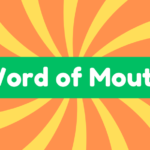Memorial Day 2025 will be observed on May 26. This day originally stemmed from the aftermath of the American Civil War, initially called Decoration Day, when families honored fallen soldiers by decorating their graves. Its significance lies in recognizing the sacrifices made by military members, prompting remembrance ceremonies and community gatherings. While many view it as a festive occasion, it is essential to assess whether the commercialization of this holiday undermines its true meaning. By reflecting on its history and purpose, we can guarantee it remains a genuine tribute to those who served, leading to deeper insights into its continued relevance today.
Synonyms
Synonyms for Memorial Day encompass a variety of terms that embody its essence of remembrance and honor. This day, marked by holiday observances, serves as a poignant reminder of the sacrifices made by military personnel throughout history. While often celebrated with parades and gatherings, the underlying purpose must not be overshadowed by festive distractions. Terms associated with this significant occasion can include:
- Remembrance Day – A broader term that expresses the act of remembering.
- Honor Day – Emphasizing the respect and recognition given to fallen service members.
- Decoration Day – The historical name, highlighting the practice of adorning graves.
- Memorial Observance – A formal acknowledgment of military remembrance.
In exploring these synonyms, we must critically evaluate how well they reflect the true spirit of this solemn holiday.
Example of Sentences
Understanding the various synonyms for Memorial Day allows for a deeper appreciation of this solemn occasion. This day is enriched by military traditions and remembrance ceremonies that reflect on those who made the ultimate sacrifice. To grasp its significance, consider the following examples:
- Many families participate in remembrance ceremonies to honor loved ones lost in service.
- Local communities often organize parades showcasing military history, emphasizing the importance of sacrifice.
- Schools teach students about Memorial Day, fostering respect for those who served.
- Volunteers decorate graves with flowers, a powerful reminder of the heroes who fought for freedom.
These examples illuminate how various expressions and activities around Memorial Day contribute to a culture of remembrance, underscoring the importance of honoring sacrifices over mere celebrations.
Origin
The origin of Memorial Day is deeply rooted in the somber history of the American Civil War, which claimed countless lives and left families mourning across the nation. This period of loss prompted an early tradition of grave decoration, where families adorned the final resting places of their loved ones with flowers, a heartfelt expression of their grief. In 1868, General John Logan formalized this custom by declaring May 30 as a national day of remembrance, designating it as Decoration Day for honoring fallen soldiers. While the name would later change, the essence remained—recognizing sacrifices made during the Civil War. This evolution into Memorial Day reflects both a celebration of bravery and a collective acknowledgment of deep loss, urging us to remember those who served.
Collocations
Recognizing the historical significance of Memorial Day is further enhanced by understanding the collocations commonly associated with this solemn observance. Reviewing these collocations reveals the nuanced cultural significance embedded within the holiday. They serve to deepen our understanding of the day's purpose and the gravity it carries.
- Honor the fallen
- Memorial ceremonies
- Military sacrifice
- Remembrance activities
Each phrase invokes the essence of Memorial Day, reflecting collective mourning and recognition of service members who gave their lives. While these collocations connect us with the past, one must critically assess their usage in contemporary contexts, ensuring that the meaning does not become diluted amid commercialization and fleeting memories. Maintaining the integrity of these expressions is critical in preserving their intended significance.
How to Use in Everyday Language
Effectively integrating the themes of Memorial Day into everyday conversations can foster a deeper appreciation for its significance. To become more engaged, discuss Memorial traditions in contexts like family gatherings or community events. Initiate dialogues around remembrance practices, such as visiting cemeteries or participating in local parades. Encouraging others to reflect on the sacrifices of military personnel can shift focus from mere festivities to meaningful recognition. Skepticism about the commercialism surrounding Memorial Day can prompt critical discussions about its true essence. Make space to share stories of those who served, as personal narratives enhance understanding. By cultivating these conversations, we honor the intent of Memorial Day while emphasizing its importance in our collective memory and cultural identity.
Why Is It Still Relevant Today?
Although many holidays may fade in cultural significance over time, Memorial Day continues to resonate deeply in contemporary society, serving as a poignant reminder of the sacrifices made by military personnel. In a world increasingly disconnected from the realities of conflict, this day urges us to engage with our remembrance culture, prompting reflection on the true cost of freedom. As we honor those who made the ultimate sacrifice, we must also confront the gap between commemoration and action. Many celebrations risk overshadowing the seriousness of these military sacrifices, reducing profound loss to mere holiday festivities. As a result, it is essential for us to reevaluate our approach, ensuring Memorial Day becomes a meaningful occasion that fosters genuine respect and awareness for our heroes.







